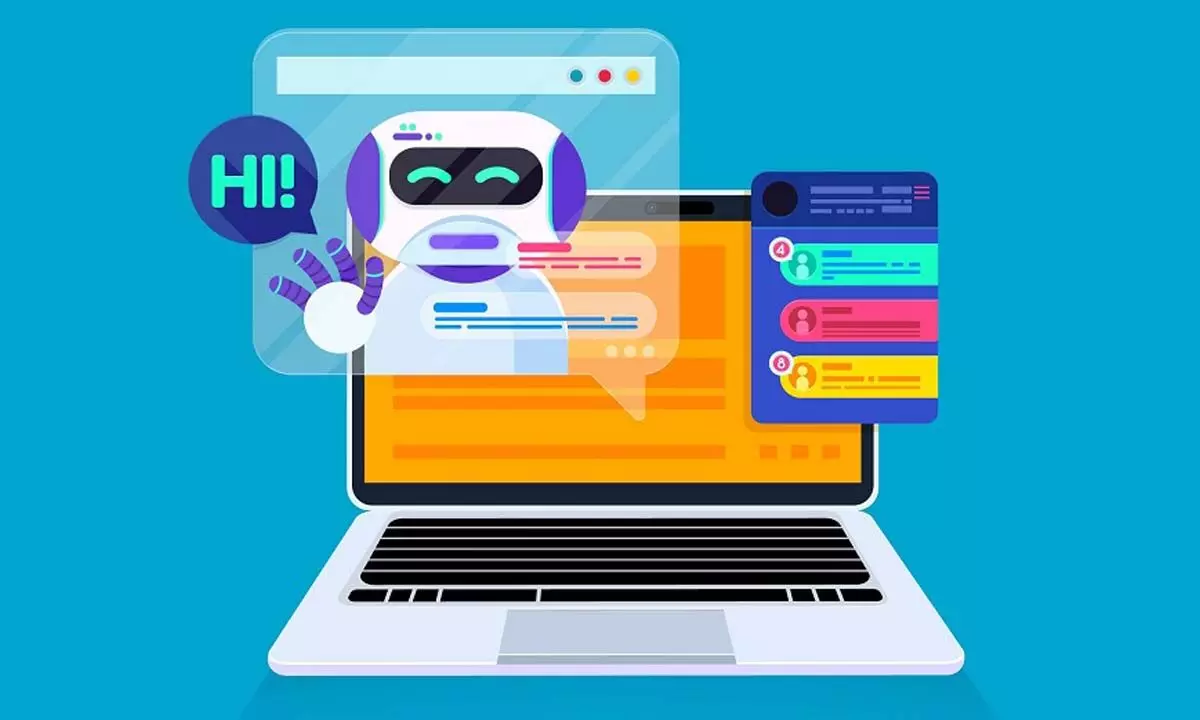Hospitality industry bets big on AI and chatbots; rakes in moolah
Automated back-office tasks can reduce human error and increase efficiency
image for illustrative purpose

Artificial intelligence, or AI, refers to the performance of seemingly intelligent behaviours by computers or machines.
AI is playing an increasingly important role in hospitality management, primarily because of its ability to carry out human functions at any time of the day. This potentially means that hotel owners can save significant money, eliminate human error and deliver superior service.
Incorporating Artificial Intelligence in hotels is stipulated to transform room services completely by 2025 through the process of creating personalized experiences that will incorporate individual preferences. Towards this, hotels will integrate chatbots and AI as a useful tool to acquire and retain various demographics.
One of the key customer service challenges for hotels is responding to questions quickly and artificial intelligence now provides an additional option for tackling this problem. Moreover, it has the capacity to assist with tasks like data analysis and, through data collection, can effectively “learn” and adapt to customer interactions.
A chatbot is an artificial program that simulates textbooks or voice dispatches used in one-on-one exchanges.
MIT professor Joseph Weizenbaum created ELIZA, the first chatbot, in 1966. Beginning with the pattern identification of rulings and affiliated answers, the discussion was carried on. Through the use of natural language processing (NLP), it transforms into a chatbot that is simpler for consumers to use as it learns from AI.
While AI can’t replace the human touch in the hospitality industry, tools powered by AI can handle many of the tasks that are traditionally undertaken by staff. Many back-office tasks can be automated, thereby reducing human error, increasing efficiency and freeing up staff for other important work.
AI is especially valuable for complex tasks like reconciling revenue from multiple disparate sources. Work that would take several days for humans can be completed by AI in a matter of minutes, with any discrepancies highlighted so they can be addressed. Another example is RPA (robotic process automation). RPA can take over repetitive tasks, undertaking them more rapidly and with fewer errors.
As the hedge to using a chatbot has been dropped, the chatbot request has been revived. Due to businesses desire to offer druggies services that can be eased by bots, chatbots have grown to be a significant social issue. A chatbot was used to imitate comforting and psychiatric treatment for people from its commencement until the early 2000s. Voice-grounded chatbots from major pots like Google, Microsoft, and Amazon latterly started to appear as smartphone operations increased, starting with Apple’s Siri in 2010.
In the meantime, interest in chatbots began to rise as a result of technological advancement in chatbot design that passed in 2016.
The capability of artificial intelligence to do traditionally mortal tasks at any time of the day means that it’s getting more and more significant in the operation of the hostel assiduity. This would indicate that possessors can save a lot of plutocrats, get relief from mortal miscalculations and provide better service.
Particularly, client service is a pivotal element of the trip sector, with hospices constantly making or breaking deals with their patrons. The options for enhancing this element using artificial intelligence are virtually measureless and range from enhanced personalization to technical recommendations.
The use of AI to give in-person client service is an illustration of artificial intelligence in the hospitality sector. Instinctive intelligent robots are being created, and this technology has immense growth eventuality. It can handle simple client-facing situations.
The Hilton company relinquishment of an AI robot serves as a fitting illustration of this. So far guests who interact with the robot can gain sightseer information from it. The capability to acclimatize to different people and learn from the mortal speech is most astounding. In the end, this means that as further druggies interact with it, the better it will emerge.
Sandeep Singh, founder of Rubystone, says: We do expect a better future with AI and technology and seek the betterment of our hotels and resorts. We seek to use chatbots in our housekeeping in the future for a smooth and efficient working environment. We will support domestic tourism and sustainable development in the hospitality industry to bring a change in the facilities and improve the services provided to the customers.
While it is logical to think that complete replacement of human personnel with AI and chatbots may not sound appropriate or acceptable to hotel guests, it is undeniable that today’s hoteliers need to adapt to technological advancements to run hospitality business with increased profit and revenue.

